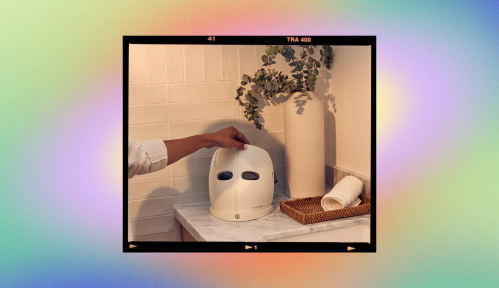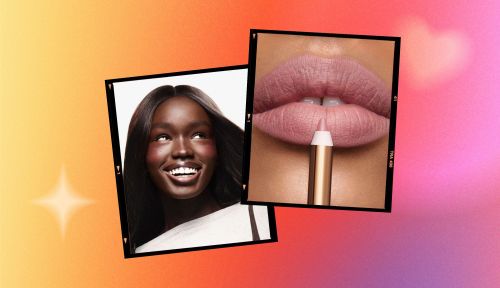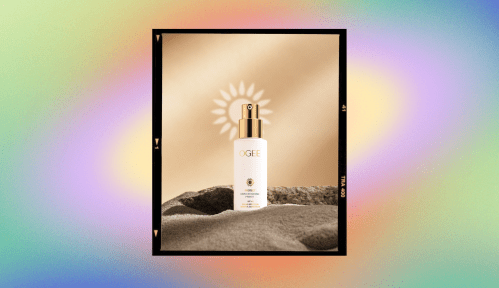A derm says that *this* is the type of sunscreen you should be using all summer
From Supergoop to Alba Boanicals, the best mineral sunscreen 2019 are skin friendly and the best way to stay protected. We promise.

Any dermatologist will tell you that most important thing you can do to keep your skin healthy—no contest—is to slather on the SPF. It’s your first line of defense against the sun’s harmful rays, and the most effective way to protect yourself from skin aging and, far worse, skin cancer. Of all of the formulas on the shelves these days, dermatologists continually sing the praises of mineral sunscreens.
A quick science lesson, as to why: There are sunscreens and sunblocks. Sunscreens, commonly recognized as “organic filters” such as avobenzone, homosalate, octisalate, octocrylene, absorb the sun’s UV rays and convert them to heat within the skin to keep you protected. Sunblocks or mineral filters, such as zinc oxide and titanium dioxide, actually create a physical block between the sun and your skin, so the rays never penetrate.
“Mineral sunblocks put a layer of protection on the skin like a shield, so the sun’s rays literally bounce off of it,” explains dermatologist Shari Marchbein, MD. Using a mineral sunscreen means that it will block both UVA and UVB rays or give broad spectrum coverage. “The reason why we want broad spectrum is UVA is usually what causes what we think of as skin aging, sun spots and wrinkles, and then skin cancer. UVB is that immediate burn.”
And what’s more, mineral blockers might just be the safest option on the market. In February, the FDA released a statement claiming that only two of the sixteen common active ingredients in sunscreen—zinc oxide and titanium dioxide—were “Generally Recognized as Safe and Effective” or GRASE, which gives me major “grool” flashbacks if I’m being honest.
Traditionally, the biggest drawback of using any sort of mineral block was the fact that it would leave a chalky residue on skin, but thanks to new formulations and advances in technology, that’s no longer the case. Case in point: Drunk Elephant and Supergoop (among many, many others) offer tinted mineral SPF products so they blend in better, and Bare Republic now has a product that’s got glitter in it. See below to shop those selects, plus a few more of our favorite mineral sunblocks for 2019.
Shop mineral sunscreen
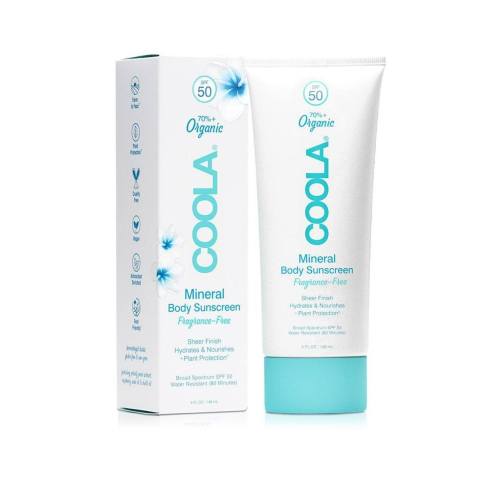
Coola Mineral Body Sunscreen Lotion SPF 50 - Fragrance-Free $36
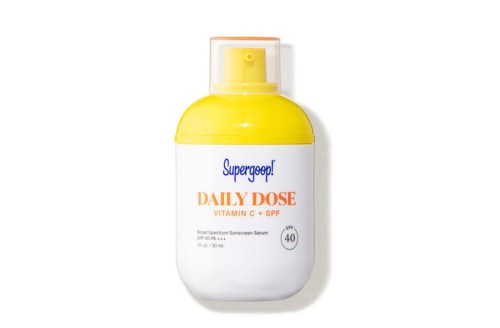
Supergoop Smooth and Poreless 100% Mineral Matte Screen $38

CeraVe Mineral Sunscreen Lotion for Face $15
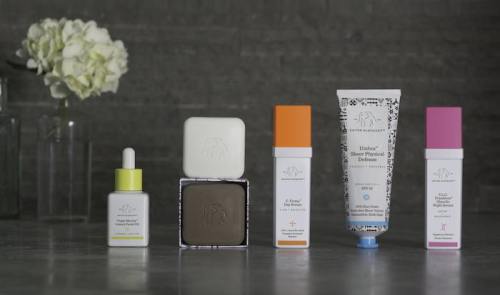
Drunk Elephant Umbra Tinte™ Physical Daily Defense Broad Spectrum Sunscreen SPF 30 $36
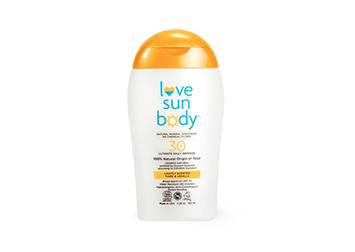
Love Sun Body SPF 30 Lightly Scented Sunscreen $21
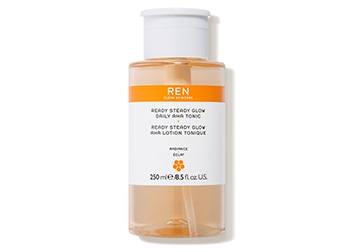
Ren Clean Screen Mineral SPF 30 Mattifying Face Sunscreen $36
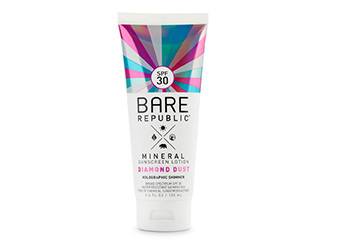
Bare Republic Holographic SPF30 Mineral Sunscreen Lotion $15

Alba Botanica Fragrance Free Sunscreen Lotion $9
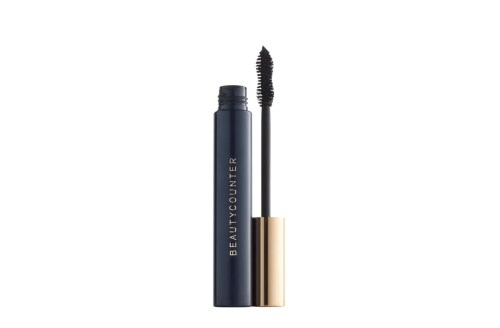
BeautyCounter Protect All Over Sunscreen SPF 30 $32
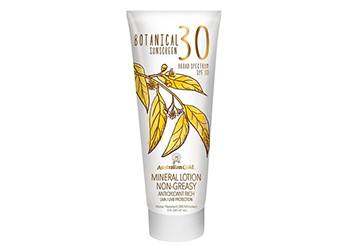
Australian Gold Botanical Mineral Sunscreen Lotion SPF 30 $13
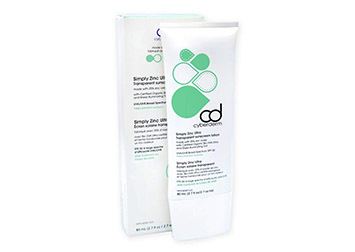
CyberDERM Natural Simply Zinc Ultra Sun Whip SPF 50 $44
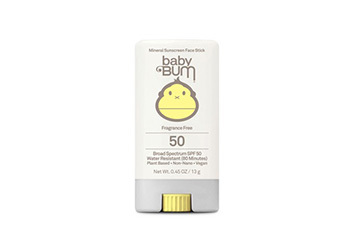
Baby Bum Mineral Sunscreen Tube $10
Yes, you should be wearing SPF every day–even when it’s cloudy. And here’s everything you need to know about UPF clothing.
Sign up for the Well+Good SHOP Newsletter
Get exclusive deals on wellness, beauty, fitness, and food products that have been hand-picked by our editors.
Got it, you've been added to our email list.

